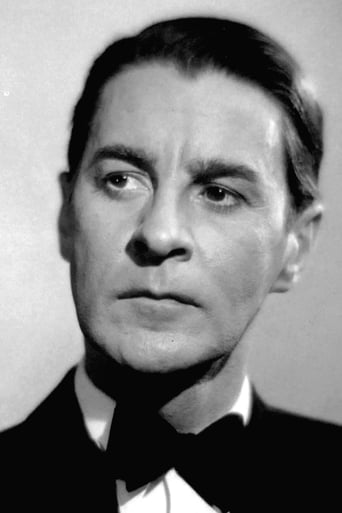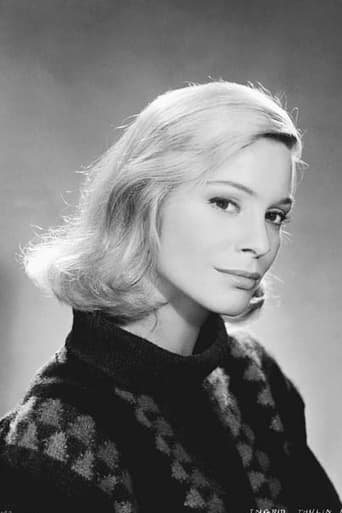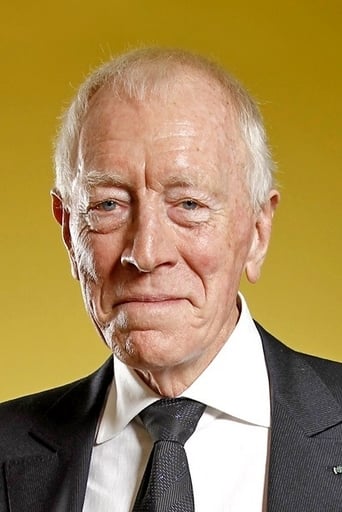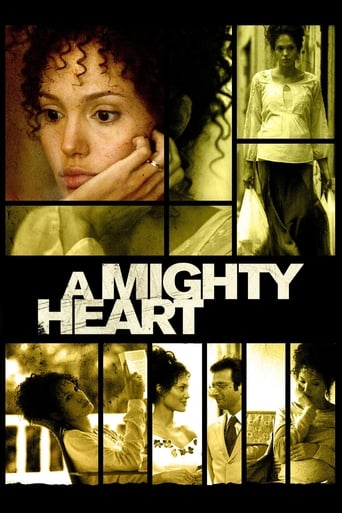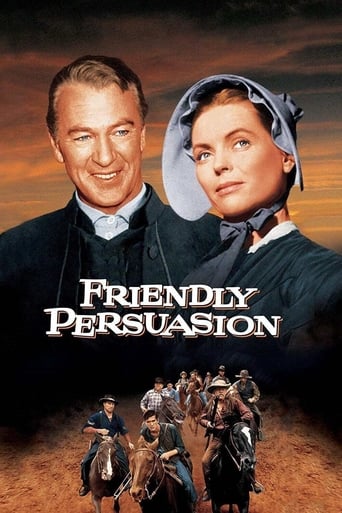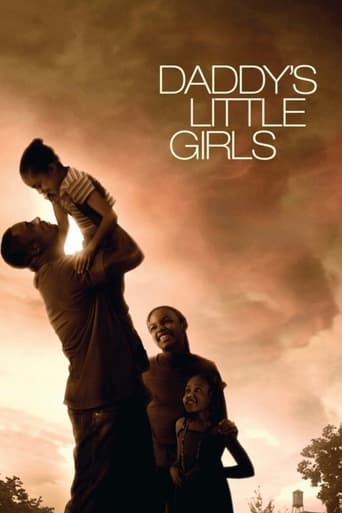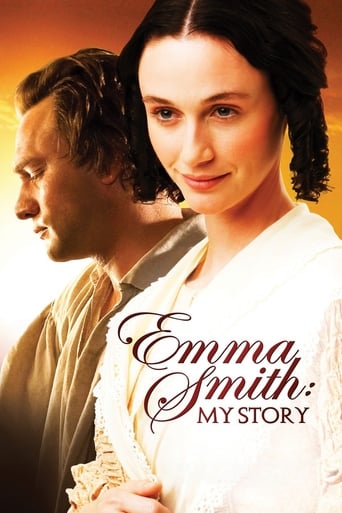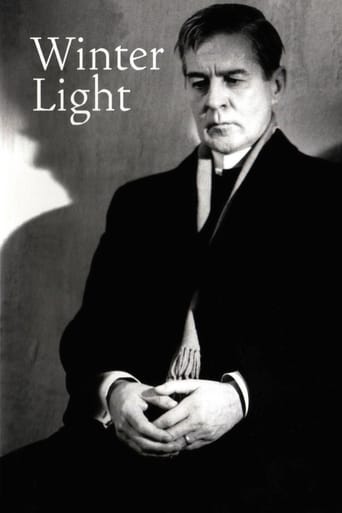
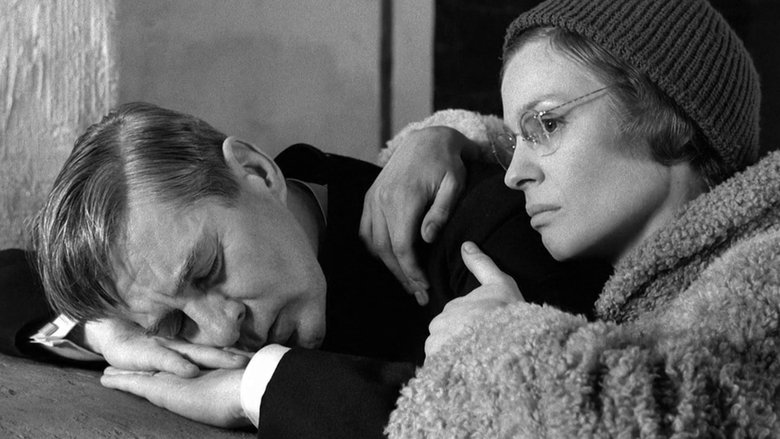
Winter Light (1963)
A Swedish pastor fails a loving woman, a suicidal fisherman and God.
Watch Trailer
Cast


Similar titles
Reviews
A Disappointing Continuation
Clever and entertaining enough to recommend even to members of the 1%
Exactly the movie you think it is, but not the movie you want it to be.
Excellent and certainly provocative... If nothing else, the film is a real conversation starter.
I saw this film again recently. The first time I watched it I was more taken with the scene of Max von Sydow, when he visits the priest. I was amazed how the priest confirms his Godless suspicions. I think the original title of this film is God's Silence and this goes with the movie around that point. The English title is Winter Light, and that is a more optimistic title, perhaps they needed that for American audiences? Nevertheless, the film does have a positive ending. I don't want to spoil it by saying how, but it's not all dark and hopeless as you go through long sequences of despair with broken relationships and characters struggling with their relationship or understanding of the existence of God. I think that if you're a deep person that's asked yourselves these questions in the past or presently, then you would relate to this film. Otherwise if you don't care about these big questions, then you probably won't care about this film either. Ingmar Berman deals with these questions in many of his other films too such as Seventh Seal, but here he does so in a different way, with this priest. I prefer this take because it's less theatrical.
Made three years before Bergman made considered by many (and me) his ultimate masterpiece, Persona (1966), he made one of his most acclaimed films, Winter Light (1963). He goes back from the themes of his iconic The Seventh Seal (1957) made in the same year as Wild Strawberries, after these two films, Bergman's style would profoundly change, with these two films, even thought they have disturbing themes, they have a comic feeling to it, later Bergman would almost exclude this feeling of "pleasantness" and only left the ruthless, cold, sometimes hopeless and painful drama of some human being. Here he explores the lack of faith, our need that a God must exist, it's a cold film, it does not use soundtrack at all, the priest (played with excellence by Gunnar Bjornstrand) is a cold man, he tends to react coldly, almost indifferent. All characters of the film seems and feels like true human beings, none of them seems fake. All have problems. The film uses an almost claustrophobic feeling to it, the places and the sound of the clock help giving the film it's disturbing feeling. Bergman does not give answers, only questions. A powerful, visually beautiful and cold film that shows Bergman's power in one of his best works.
***SPOILERS*** One of Ingmar Beregman's most depressing films has everyone in it on the brink of doing themselves in and in one case fisherman Jonas Persson, Max von Sydow, does. The movie has to do in a day in the life of Lutheran Pastor Thomas Ericsson, Gunnar Bjornstrand, who's just about had it with the church whom he feels after all these years of being part of it let him and the world at large down. This all started some 25 years ago when he was involved-preaching for peace-in the Spanish Civil War and witnessed the horrors in it. Now in 1962 he's confronted with a gaunt and suicidal looking Jonas who's terrified that the Communist Chines well soon detonate-they did in 1964- an atomic bomb that will lead to WWIII.After giving Jonas his usual BS story about love and peace, that he in fact doesn't at all believe in, being the way to go the poor man leaves his chapel and on his way home sits down by a tree and blows his brains out. This is nothing compared to what Thomas is later confronted with in middle age spinster & substitute teacher Marta Lundberg, Ingrid Thulin, who was hiding behind the curtains who shows up and gives him this long and boring story about how much she loves the guy and wants him to marry her, in a letter she mailed him, before he himself who's in danger of contracting pneumonia kicks off.It's here in regard to the sobbing Marta that Thomas, who looked like he had already one foot in the grave, suddenly comes alive and lets all his feeling about God and Marta as well as the world situation come to the surface. In that the man of God doesn't believe in anything good anymore and just wants to start a new life as a carpenter or druggist in town and forget all that he was thought in divinity school that he now feel was total BS. Marta for her part instead of getting more depressed sees that the man she's in love with and wants his support is in fact far more screwed up in the head then she ever was or even possibly will be.***SPOILERS*** The by now totally out of it Thomas after letting it all out in the wash now goes back to give his speech to those assembled in his church, about a half dozen, about the glory of God and how the entire world is filled with it. Which earlier he had totally rejected as a by now understanding Marta realizes just how off the wall he is being one of the few listening in on his sermon. The world is what we not God makes it which is why we were given free will to do good or bad without his-God's-interference or influence in our actions. Strak black & white photography as well as bleak wintry scenery makes this Bergman film far more depressing then it really is. After seeing it you feel that there's no hope for the world and mankind. But it's Thomas suddenly realizing that's the way it's supposed to be in order to overcome one's depressions, like it seemed that Marta did, that it makes life worth both living as well as suffering through it.
Film history is no stranger to religion. From biblical allegory in the character of Maria in Metropolis to the silent meditation of last year's Polish film Ida, European films have grappled with the question of creed and God's existence. In these films, the faith-filled characters often experience harsh realities and go through tests of faith. The films of Ingmar Bergman are normally rich with religious themes. In 1957, he made The Seventh Seal, which centers on a man who contemplates his existence while playing a game of chess with death. Three years later, The Virgin Spring ends in a father proclaiming to God that he will build a church in atonement for his vengeful sins. He continues this tradition in his 1963 film Winter Light. The film explores a character who is plagued with doubt. He is struggling to find meaning in a world of pain and suffering. In the end, he does not reach a clear revelation about his faith, but he does evolve spiritually as well as learn that despair is never the path to follow. The central issue of the film, namely the balance between hope and doubt, is elucidated through the constant struggle of faith the main character goes through. The movie is, in one respect, a study on a pastor who is trying to find out who he is. He is searching for meaning beyond his monotonous life. The movie does not treat memory as the primary function of identity, nor does it treat physical appearance or even personality as what makes a character who he or she is. The film instead emphasizes that which gives a character's life meaning: God or something else. Ingmar Bergman has stated that he put a lot of himself in the movie. He was the son of a strict priest and grew up around religious artifacts, teachings, and customs. He said that he lost his faith at an early age and came to terms with that fact in the making of Winter Light. Perhaps he, like Tomas, became familiar with despair but never let it defeat him, and in making this film he is giving both a lesson and a warning – religious or not, without something to live for, life is not worth living.


